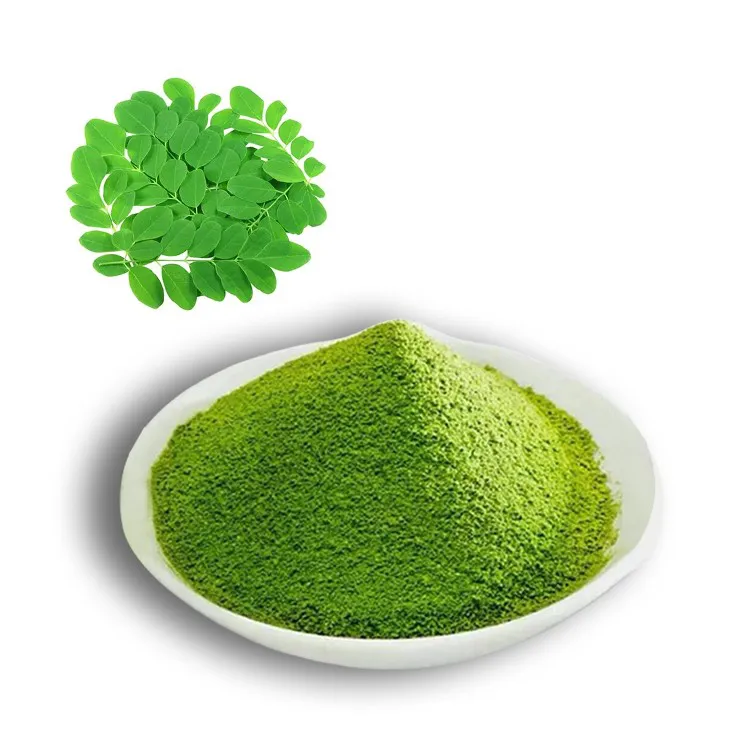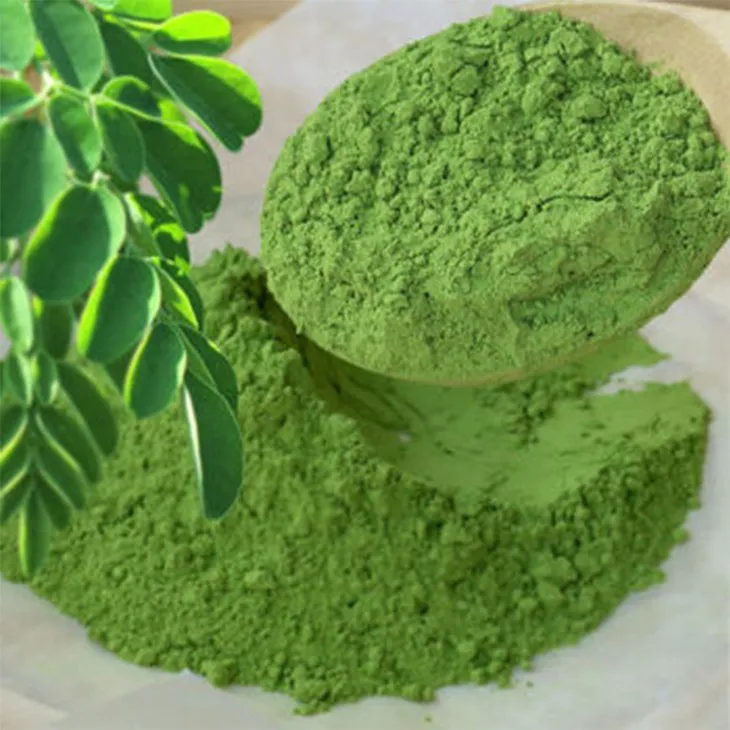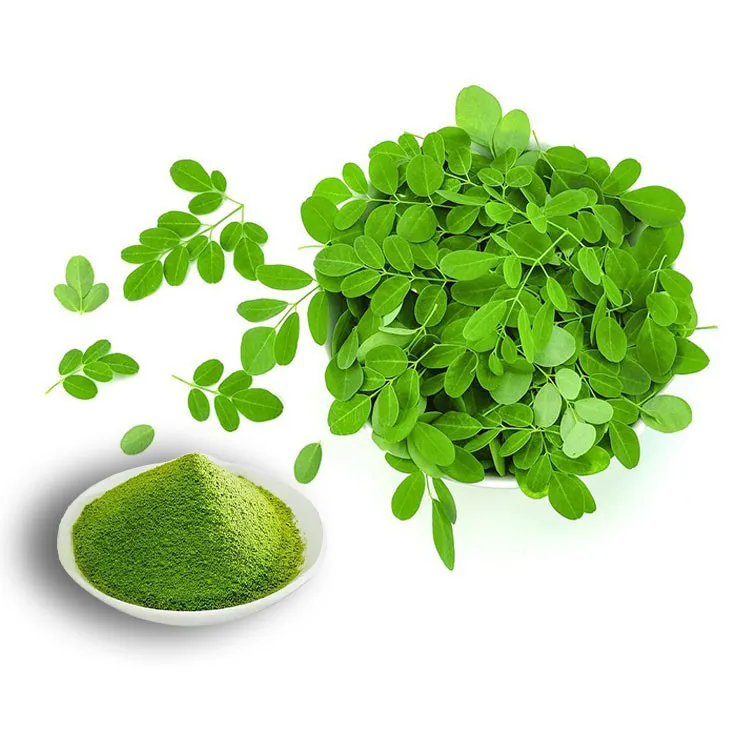- 0086-571-85302990
- sales@greenskybio.com
The Best Types of Moringa Powder: A Guide to Choosing the Best Moringa Powder
2024-11-13

Introduction
Moringa powder has gained significant popularity in recent years due to its numerous health benefits. Derived from the moringa tree, which is native to parts of Africa and Asia, this powder is rich in nutrients such as vitamins, minerals, and antioxidants. However, not all Moringa powders are created equal. There are various factors to consider when choosing the best Moringa powder for your needs. In this guide, we will explore these factors in detail, including purity, origin, and potency.

Purity of Moringa Powder
Purity is a crucial factor when it comes to moringa powder. Pure moringa powder should contain only the dried and ground leaves of the moringa tree, without any additives or fillers.
Identifying Additives
Some less - than - honest manufacturers may add fillers such as wheat flour, cornstarch, or other cheap powders to their moringa products. To identify if a moringa powder has additives, check the ingredient list carefully. If there are any ingredients other than "moringa oleifera leaf powder", it may not be pure. Additionally, the texture can also give a clue. Pure moringa powder has a fine, smooth texture, while powders with additives may feel gritty or have an inconsistent texture.
Testing for Purity
There are also some simple tests you can do at home to test the purity of moringa powder. For example, you can mix a small amount of the powder with water. Pure moringa powder will dissolve relatively easily, leaving behind a greenish - tinted liquid. If there are undissolved particles or the liquid has an unusual color or consistency, it could indicate the presence of additives.

Origin of Moringa Powder
The origin of moringa powder can have a significant impact on its quality. Moringa trees grow in different regions around the world, and the environmental conditions in these areas can affect the nutrient content of the leaves.
Native Regions
Moringa oleifera is native to parts of Africa and Asia. In Africa, countries like Senegal, Ethiopia, and Tanzania are known for their moringa production. In Asia, India has a long history of moringa cultivation. Moringa from its native regions may be more likely to be of high quality as the trees are well - adapted to the local climate and soil conditions.
Organic vs. Non - Organic
When considering the origin, it is also important to think about whether the moringa is organically grown or not. Organic moringa powder is grown without the use of synthetic pesticides, fertilizers, or genetically modified organisms (GMOs). Organic farming methods are generally considered more sustainable and can result in a higher - quality product. Organic moringa powder may also have a higher nutrient content as the soil is likely to be more fertile due to the use of natural fertilizers such as compost and manure.

Potency of Moringa Powder
The potency of moringa powder refers to its nutrient density and the strength of its health - promoting properties. Different factors can affect the potency of moringa powder.
Harvesting Time
The time at which the moringa leaves are harvested can greatly influence the potency of the resulting powder. Moringa leaves should be harvested when they are young and tender, as this is when they have the highest nutrient content. Leaves that are harvested too late may have lower levels of vitamins and minerals. For example, young moringa leaves are rich in vitamin C, but as the leaves mature, the vitamin C content decreases.
Processing Methods
The way in which the moringa leaves are processed into powder can also affect potency. The best - quality moringa powder is typically made using low - temperature drying methods. High - temperature drying can destroy some of the heat - sensitive nutrients such as vitamins and enzymes. Additionally, the grinding process should be fine enough to ensure that the nutrients are easily absorbed by the body.
Types of Moringa Powder
There are different types of moringa powder available in the market, each with its own characteristics.
Raw Moringa Powder
Raw moringa powder is made from fresh, dried moringa leaves that are simply ground into a powder. This type of powder retains most of the natural nutrients of the leaves, as it has not been subjected to extensive processing. However, it may have a stronger, more "earthy" taste compared to other types of moringa powder.
Organic Moringa Powder
As mentioned earlier, organic moringa powder is grown without the use of synthetic chemicals. It is a great choice for those who are concerned about pesticide residues and want a more natural product. Organic moringa powder may also have a higher antioxidant content due to the healthier soil conditions in which the moringa trees are grown.
Enhanced Moringa Powder
Some manufacturers produce enhanced moringa powder, which may contain additional nutrients or herbs. For example, some enhanced moringa powders may include added vitamins, minerals, or adaptogenic herbs like ashwagandha. While these enhanced powders can offer additional health benefits, it is important to check the ingredient list carefully to ensure that there are no unwanted additives or allergens.
How to Use Moringa Powder
Moringa powder can be used in a variety of ways to incorporate its health benefits into your daily routine.
In Beverages
One of the easiest ways to consume moringa powder is by adding it to beverages. You can mix it into smoothies, juices, or even just a glass of water. For a simple moringa - water drink, add a teaspoon of moringa powder to a glass of cold water and stir well. If you prefer a sweeter taste, you can add a little honey or a natural sweetener of your choice.
In Food
Moringa powder can also be added to food. It can be sprinkled on top of salads, soups, or cooked vegetables for an extra nutritional boost. You can also use it in baking, for example, by adding it to muffin or pancake batter. However, keep in mind that moringa powder has a distinct taste, so it may not be suitable for all recipes.
As a Dietary Supplement
Many people take moringa powder as a dietary supplement. It is available in capsule or tablet form for those who prefer a more convenient way to consume it. When taking moringa powder as a supplement, it is important to follow the recommended dosage instructions. Generally, a daily dose of 1 - 3 grams of moringa powder is considered safe for most adults.
Conclusion
Choosing the best moringa powder requires careful consideration of factors such as purity, origin, and potency. By understanding these factors and the different types of moringa powder available, you can make an informed decision and select a product that meets your health needs. Whether you are looking for a pure, raw moringa powder or an enhanced version with additional nutrients, there is a moringa powder out there for you. Incorporating moringa powder into your diet can be a great way to boost your overall health and well - being.
FAQ:
What are the main factors to consider when choosing moringa powder?
When choosing moringa powder, several factors are important. Purity is a key factor. High - quality moringa powder should be free from contaminants and additives. The origin of the moringa also matters. Moringa grown in certain regions may have different qualities due to soil, climate, and farming practices. Potency is another aspect. This can be related to the nutrient content of the powder, such as the levels of vitamins, minerals, and antioxidants.
How can one determine the purity of moringa powder?
To determine the purity of moringa powder, look for products that are certified organic or have been tested for contaminants. Check the label for information on any additives or fillers. Reputable brands often provide details about their sourcing and production processes, which can give an indication of purity. You can also look for reviews or ask for recommendations from trusted sources.
Does the origin of moringa powder really affect its quality?
Yes, the origin of moringa powder can affect its quality. Different regions have different soil compositions, climates, and agricultural practices. For example, moringa grown in nutrient - rich soil and a favorable climate may have higher nutrient levels. Also, regions with strict agricultural regulations may produce moringa powder with fewer contaminants.
What are the different types of moringa powder available in the market?
There are various types of moringa powder available in the market. Some are made from the leaves of the moringa tree, which are rich in nutrients like vitamins A, C, and E, as well as minerals. There are also moringa root powders, although the root may contain certain compounds that require caution in consumption. Additionally, some products may be a blend of different parts of the moringa plant.
How can one ensure the potency of the moringa powder they purchase?
To ensure the potency of the moringa powder you purchase, look for products with a high nutrient profile. Check the label for the levels of key nutrients such as protein, fiber, and vitamins. Buying from a reliable source that tests its products for potency is also important. Additionally, proper storage of the powder, in a cool, dry place away from sunlight, can help maintain its potency.
Related literature
- The Nutritional Benefits of Moringa Powder"
- "Moringa Powder: Quality Assessment and Selection"
- "Origin - related Quality Variations in Moringa Powder"
- ▶ Hesperidin
- ▶ citrus bioflavonoids
- ▶ plant extract
- ▶ lycopene
- ▶ Diosmin
- ▶ Grape seed extract
- ▶ Sea buckthorn Juice Powder
- ▶ Beetroot powder
- ▶ Hops Extract
- ▶ Artichoke Extract
- ▶ Reishi mushroom extract
- ▶ Astaxanthin
- ▶ Green Tea Extract
- ▶ Curcumin Extract
- ▶ Horse Chestnut Extract
- ▶ Other Problems
- ▶ Boswellia Serrata Extract
- ▶ Resveratrol Extract
- ▶ Marigold Extract
- ▶ Grape Leaf Extract
- ▶ blog3
-
Cranberry Plants and Skin - care Products.
2024-11-13
-
Curcumin Extract
2024-11-13
-
Hericium erinaceus extract powder
2024-11-13
-
Lavender Extract
2024-11-13
-
Hesperidin
2024-11-13
-
Sophora Flavescens Root Extract
2024-11-13
-
Purple Sweet Potato Extract
2024-11-13
-
Pine bark Extract Powder
2024-11-13
-
Baicalin
2024-11-13
-
Curcuma Longa Extract/Turmeric extract
2024-11-13
-
Hedyotis Diffusa Extract
2024-11-13





















